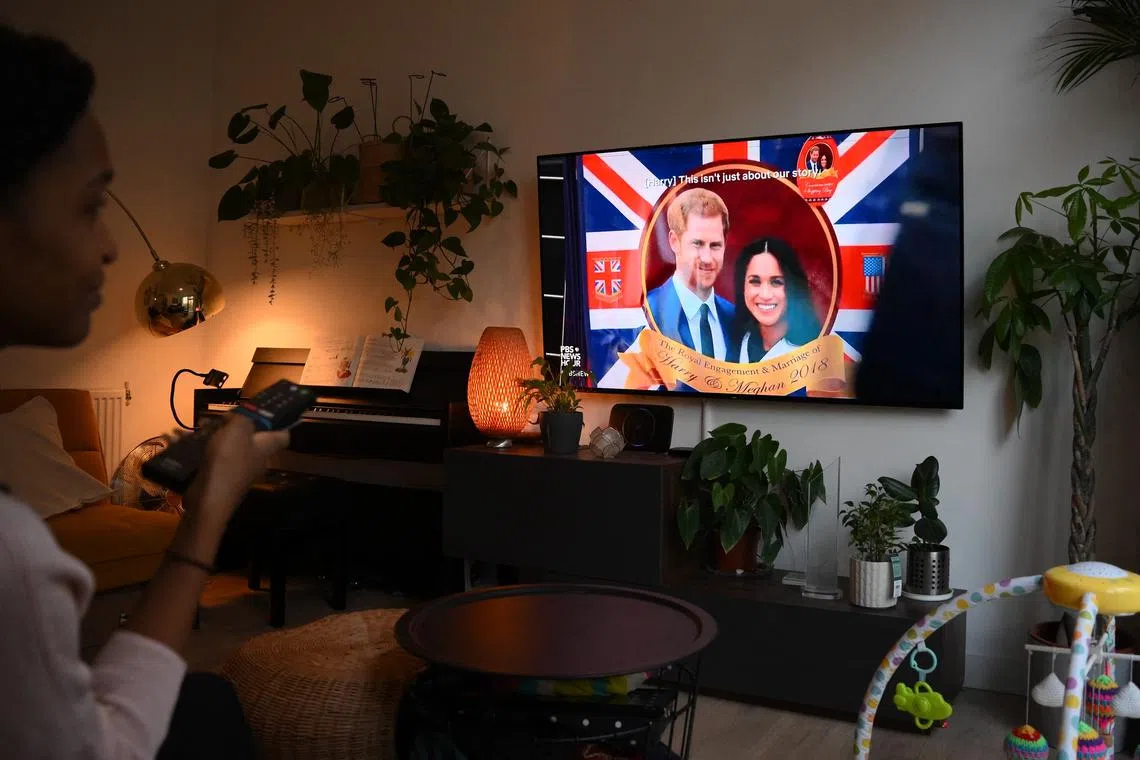For subscribers
Harry and Meghan and the perils of superstar culture
You don’t have to be a prince to market yourself into the limelight these days. But fame, or notoriety, often comes at the expense of the institution that paved your way.
Sign up now: Get ST's newsletters delivered to your inbox

Prince Harry and Meghan represent the rising tension between individual branding and the power and prestige of being part of an institution.
PHOTO: AFP
Allison Schrager
Follow topic:
One of the reasons the public is obsessed with Prince Harry and his wife Meghan
In the past, if money and security and status were what you craved, your path was clear: You got a job at the most prestigious institution you could and became a valuable team player. This meant giving up some part of your identity. You wouldn’t be well-known to people outside your field, or probably even within the company.

